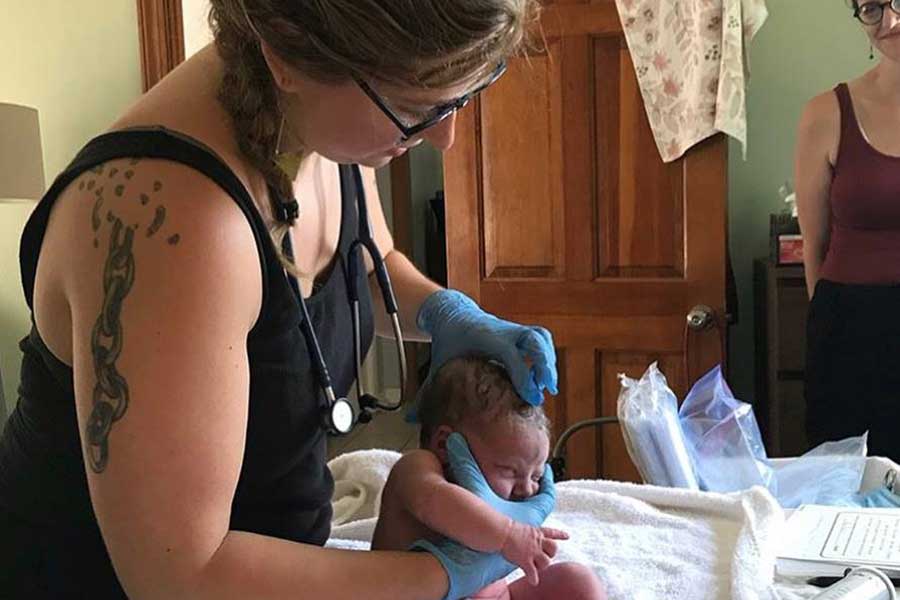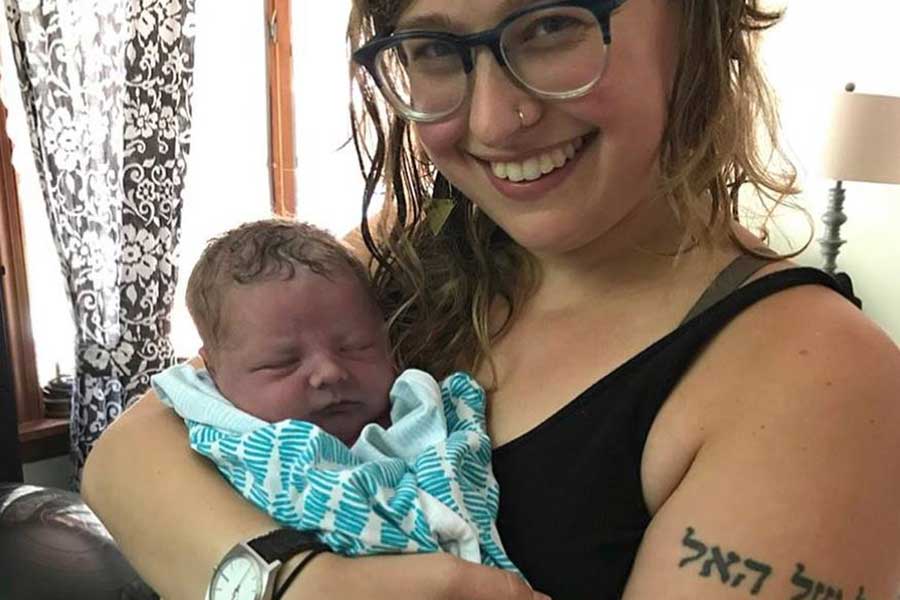
Ray Rachlin, certified professional midwife and owner of Refuge Midwifery, is celebrating the one year anniversary of her home-birth practice and its expansion. Refuge’s new office space open its doors in West Philly just this month.
Refuge Midwifery is one of four CPMs in city limits, and one of the only home-birth practices catering to LGBTQ patients.
For Rachlin, her specialization is personal. As a teen, she remembers receiving personalized healthcare as a participant in a youth program at Callen-Lorde, the New York City LGBTQ community health center.
“It was life-changing to have providers that treated me with respect: to just be treated as a person who could make decisions about my own body and be given the information and tools to do that,” said Rachlin, who identifies as queer.
Thus, her the decision to explore these values through midwifery was a natural transition.
Rachlin attended her first home birth as a doula — a birth coach — in 2010, and was immediately hooked.
“It just looked so different,” she recalled. “I attended births in hospitals before this, and it was just so different when a person wasn’t working around the hospital systems.”
In the past year, Rachlin has attended close to 25 births as the owner of Refuge. She averages four births a month and is helping some five-10 people get pregnant at any given time.
Of those couples, a third are LGBTQ.
For queer clients looking to conceive, Rachlin said a home-birth midwife makes sense.
“I offer a lot of the things that queer and trans people want in care, like having continuity, a known provider, not having to deal with office staff, since I do all my labs in house, and not having to interact with other healthcare providers.
Rachlin also offers ways for clients to track their fertility, guides them through intrauterine inseminations (IUIs), and also performs IUIs at her clients’ homes.
If Rachlin has a niche within the home-birth arena, it’s fertility care for trans clients. During her three-year certification program at Birthingway College and Midwifery in Portland, she spent a term caring exclusively for trans patients.
“I specialized in this niche of helping people get off hormones and helping them figure out when and how to use their genetic material to get pregnant.” said Rachlin.
Because of how poorly home birth is covered by insurance, Rachlin’s clientele fit a traditional demographic. They’re highly educated, in their 30s and upper-to-middle class.
However, in the past year, she’s seen a trend of younger, working-class families.
“I was raised by a single mom, so I grew up kind of working-class,” said Rachlin. “Having these clients who were also,young and working class, and being like, ‘Don’t tell me what to do with my body!’ I was like‘ That’s me! I get to serve me! This is so much fun.”
As Rachlin continues to practice, serving her community is her priority. This month, she planned an alternative healthcare dinner to connect with other queer providers in the area. But, she had to cancel last-minute. A baby a week and a half overdue decided it was time.
No matter. Rachlin has a workshop planned for this month on how to create a pregnancy when you lack the sperm. It’s called Behind The Baster.
Behind The Baster will be held Sept. 16 from 11:30-1:30 p.m. at Studio 34, 4522 Baltimore Ave. Visit https://www.refugemidwifery.com/events/beyondthebaster for details.

